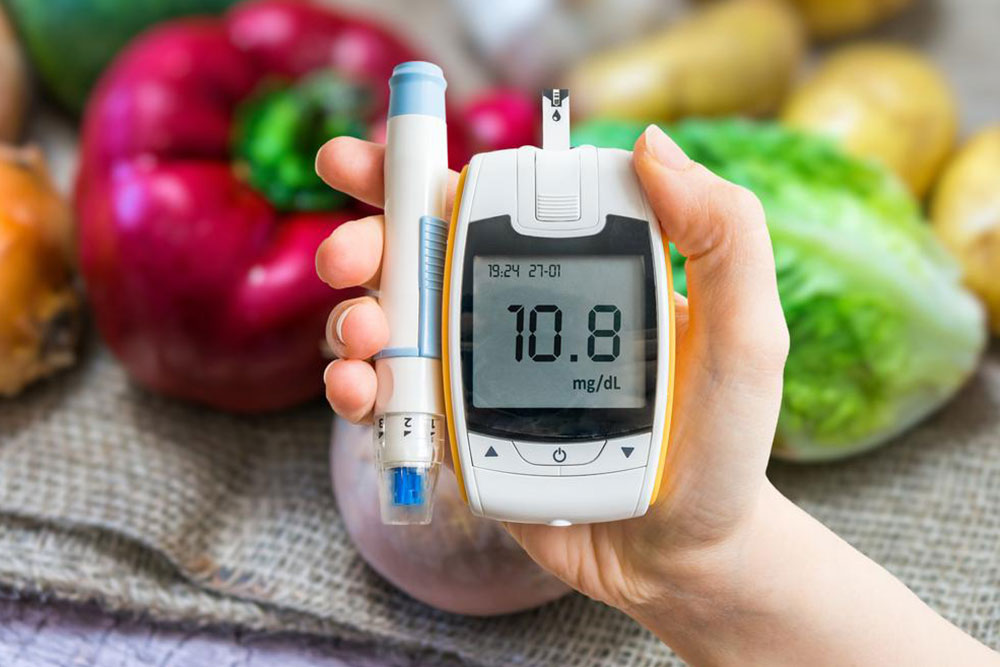Essential Tips: Avoid These 4 Sugary Foods to Level Up Your Diabetes Management
Discover essential tips on which four sugary foods to avoid for better diabetes management. This comprehensive guide explains how flavored yogurt, artificial sweeteners, fast food, and dehydrated fruits can negatively impact blood sugar levels. Learn smarter alternatives and dietary habits that support stable glucose levels, reduce health risks, and promote a healthier lifestyle for diabetics. Whether you’re seeking to improve your diabetic control or simply want to make healthier eating choices, this article provides actionable insights to help you stay on track and maintain your well-being.

Essential Tips: Avoid These 4 Sugary Foods to Level Up Your Diabetes Management
Managing diabetes effectively requires a diligent approach to dietary choices, lifestyle modifications, and consistent monitoring of blood sugar levels. Among these, controlling sugar intake is fundamental, as excessive sugar consumption can lead to blood glucose spikes and complicate disease management. With a plethora of food options available today—including processed snacks and packaged foods—it's crucial for individuals with diabetes to identify and limit foods that are deceptively high in sugar. This comprehensive guide discusses four common sugary foods that, although seemingly harmless or delicious, can significantly impact blood sugar stability and overall health if not avoided or consumed in moderation.
Flavored Yogurt: A Hidden Source of Excess Sugar
One of the most popular snack choices worldwide is flavored yogurt, favored for its creamy texture and appealing taste. However, many commercial flavored yogurts are loaded with added sugars to enhance flavor and appeal, which can overshadow their nutritional benefits. It’s common to see these products boasting added fruit or sweet toppings, but often the sweetness is achieved through high fructose corn syrup, cane sugar, or other sweeteners, making them far more sugary than natural fruit. Excessive sugar intake from flavored yogurt can cause rapid blood glucose increases, undermining diabetes control efforts. A smarter choice is plain Greek yogurt or natural unsweetened yogurt paired with fresh fruits such as berries, slices of mango, or sliced kiwi to naturally boost sweetness without the added refined sugars. Additionally, incorporating vegetables like carrot or cucumber sticks can provide crunch and nutrients without spiking blood sugar levels. This simple switch ensures you enjoy nutritious probiotics while maintaining stable glucose levels.
Artificial Sweeteners: Are They Really a Safe Alternative?
Artificial sweeteners are frequently marketed as safe, calorie-free sugar substitutes suitable for people managing diabetes. They are found in many sugar-free gum, beverages, and processed foods. Despite their popularity, recent studies suggest that artificial sweeteners are not entirely risk-free. Some research indicates that they might trigger unexpected blood sugar spikes in certain individuals, possibly due to how these sweeteners interact with your gut bacteria or insulin response pathways. Additionally, some artificial sweeteners contain compounds such as aspartame, sucralose, or saccharin, which may have long-term health implications if consumed in large quantities. While they may offer a lower-calorie alternative to sugar, it is essential to use them with caution and in moderation. Moreover, natural alternatives such as stevia or monk fruit extract are gaining popularity as safer, plant-based sweeteners that do not adversely affect glucose levels. Ultimately, mindful consumption of artificial sweeteners is key to avoiding unintended impacts on blood sugar management.
Fast Food: Carbohydrates and Trans Fats That Elevate Blood Sugar
Fast food items such as fries, burgers, pizza, and fried chicken are pervasive in modern diets for their convenience and taste. However, these foods are typically rich in refined carbohydrates, trans fats, and added sugars, all of which can wreak havoc on blood sugar control. The high carbohydrate content from simple starches causes rapid digestion and absorption, leading to quick spikes in blood glucose levels. This is particularly concerning for diabetics who need to maintain steady glucose throughout the day. Moreover, trans fats found in fried fast foods contribute to inflammation, insulin resistance, and increased cardiovascular risk. Regular consumption of fast foods may also promote weight gain and lead to metabolic disturbances. To better manage diabetes, it’s advisable to limit fast food intake and choose more balanced, home-cooked meals featuring whole grains, lean proteins, and healthy fats. This shift not only stabilizes blood sugar but also improves overall cardiovascular health and energy levels.
Dehydrated Fruits: Concentrated Sugars That Can Sabotage Blood Sugar Control
Dehydrated or dried fruits like raisins, apricots, dates, and cranberries are flavorful, convenient snacks, and are often marketed as healthy alternatives to processed sweets. While dried fruits contain natural sugars from fruit concentration, this process also removes water, significantly increasing the sugar content per serving. For people with diabetes, high sugar density can cause insulin levels to spike unexpectedly, especially if eaten in large portions. Although dried fruits retain fiber and nutrients, their concentrated sugars can swiftly elevate blood glucose levels, making them less suitable for blood sugar management. To enjoy dried fruits safely, portion control is critical. Pairing small servings with proteins or healthy fats can mitigate blood sugar spikes. Alternatively, fresh fruits, which contain higher water content, are preferable for maintaining stable glucose levels. Being mindful about dried fruit intake helps prevent unexpected blood sugar fluctuations and promotes better overall control of diabetes symptoms.





